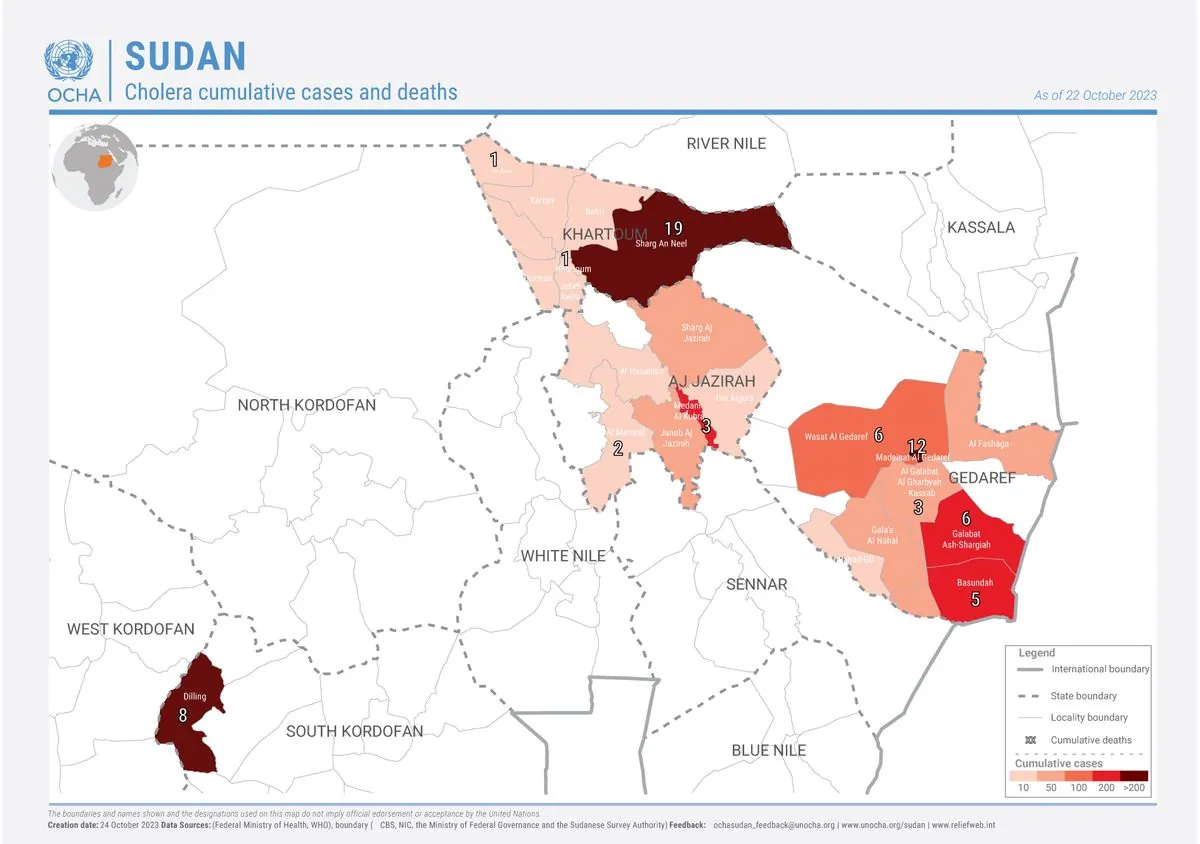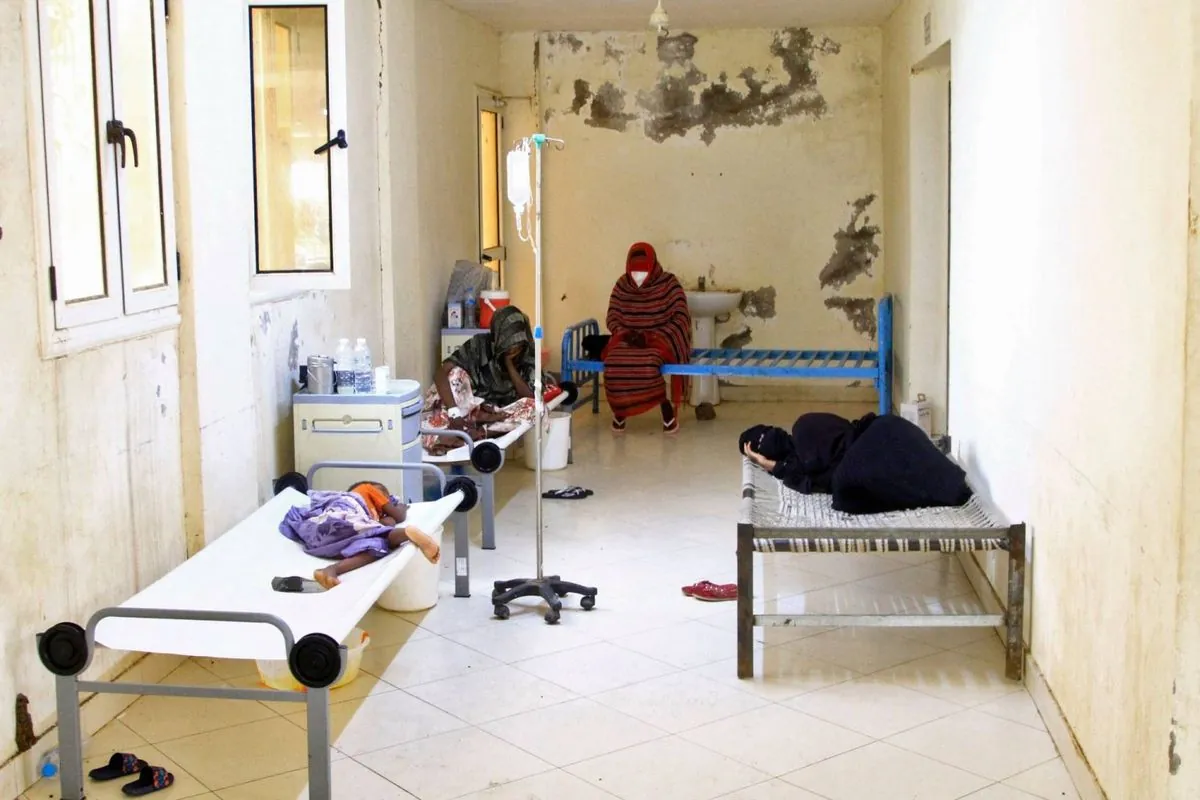Cholera Outbreak Intensifies Sudan's Humanitarian Crisis Amid Ongoing Conflict
Sudan faces a severe cholera outbreak, compounding its ongoing civil conflict. With 388 deaths and 13,000 infections in two months, the crisis highlights the nation's struggle with war, displacement, and natural disasters.

Sudan, the third-largest country in Africa by area, is grappling with a severe cholera outbreak amidst an ongoing civil conflict. Over the past two months, the disease has claimed at least 388 lives and infected approximately 13,000 individuals, according to health authorities. This crisis is unfolding as the nation, with a population of about 45 million, enters its 18th month of fighting between military forces and a paramilitary group.
The cholera epidemic is particularly severe in areas devastated by recent heavy rainfall and floods, especially in eastern Sudan where millions of war-displaced people have sought shelter. The eastern provinces of Kassala and al-Qadarif have been hit hardest, with the disease detected in 10 of the country's 18 provinces. Over a recent weekend, six deaths and about 400 new cases were reported.
Cholera, a fast-developing and highly contagious infection, causes diarrhea leading to severe dehydration and possible death within hours if untreated. It is transmitted through contaminated food or water. This outbreak is not unprecedented in Sudan; a previous major outbreak in 2017 resulted in at least 700 deaths and 22,000 infections in less than two months.

The current situation is exacerbated by the ongoing conflict that began in April 2022, when tensions between the military and the Rapid Support Forces (RSF) erupted into open warfare. This conflict has devastated urban areas, including the capital Khartoum, where the Blue and White Nile rivers meet. The fighting has been marked by atrocities, including mass rape and ethnically motivated killings, particularly in the western region of Darfur.
According to the United Nations, the conflict has claimed at least 20,000 lives and wounded tens of thousands more, though rights groups suggest the toll may be higher. It has also created the world's largest displacement crisis, forcing over 13 million people to flee their homes, including more than 2.3 million who have sought refuge in neighboring countries.
"The situation in Sudan is dire. We are witnessing a humanitarian catastrophe of unprecedented proportions in the country's recent history."
The cholera outbreak and ongoing conflict are compounded by devastating seasonal floods. At least 225 people have been killed and about 900 injured due to flooding, with critical infrastructure washed away and over 76,000 houses destroyed or damaged. These challenges are further intensified by famine, confirmed in July 2024 in the Zamzam camp for displaced people near North Darfur's capital, al-Fasher.
Sudan's economy, primarily based on agriculture and oil exports, has been severely impacted by these crises. The country, which gained independence from the United Kingdom in 1956, has a rich archaeological heritage, including ancient Nubian pyramids, but its development has been hindered by multiple civil wars since independence.
The ongoing conflict continues to rage, particularly in al-Fasher, the last major city in Darfur held by the military. The RSF and its allied Arab militias recently launched a new attack on the city, which the military claims to have repelled, resulting in significant casualties.
As Sudan faces these multiple crises, international attention and aid are crucial. The country, home to diverse ethnic groups including Arabs, Nubians, and Beja, requires immediate assistance to address the cholera outbreak, alleviate famine conditions, and work towards resolving the ongoing conflict. With over half of Sudan's population facing acute hunger this year, the situation remains critical and demands urgent global response.


































